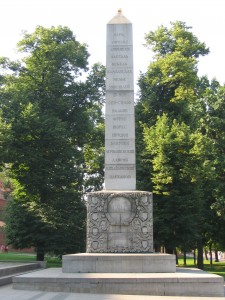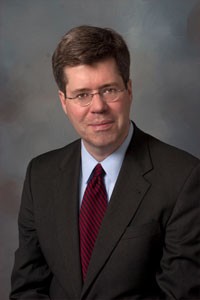Kleefisch Advocates for Walker’s Positions During “On the Issues” Session
The only formal duty of a lieutenant governor stated in Wisconsin’s constitution is to become governor if a vacancy occurs in that office.
“My constitutional duty is succession. I know my job and I understand my constitutional duty,” Rebecca Kleefisch, Wisconsin’s lieutenant governor, said during an “On the Issues with Mike Gousha” program at Marquette Law School on Wednesday.
The question asked by Gousha, the Law School’s distinguished fellow in law and public policy, was whether Kleefisch wanted to be governor at some point in the future. Her answer dodged that question – and that points to the informal main duties of a lieutenant governor: Don’t make trouble for the governor, don’t get out on a limb, and always speak up for the things the governor is doing.

 Next year is the quincentennial of the publication of Thomas More’s Utopia, and celebrations of the book and its author have already begun. More, of course, is a darling of Western culture and politics. He was canonized and is considered the patron saint of politicians and statesmen. Essayist C.K. Chesterton said that More may be “the greatest historical character in English history.”
Next year is the quincentennial of the publication of Thomas More’s Utopia, and celebrations of the book and its author have already begun. More, of course, is a darling of Western culture and politics. He was canonized and is considered the patron saint of politicians and statesmen. Essayist C.K. Chesterton said that More may be “the greatest historical character in English history.”